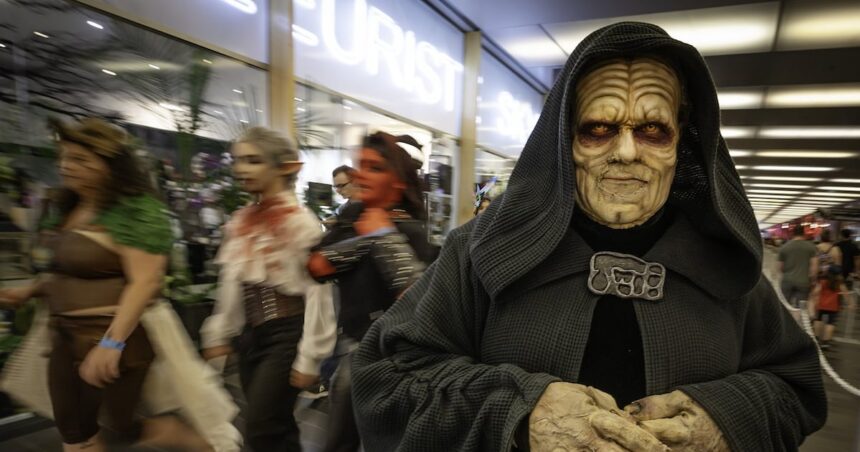I’m Amélie Leclerc, and I’ve been covering Montreal’s cultural scene for over 15 years. This weekend, I navigated through a sea of colorful cosplayers and excited fans at Montreal’s Palais des Congrès to bring you this exclusive report.
Montreal Comiccon shattered attendance records this weekend, welcoming over 68,000 visitors despite growing tensions between Canada and the United States that affected some American exhibitors’ participation. The three-day celebration of pop culture transformed downtown Montreal into a vibrant showcase of creativity and fandom.
“We’ve never seen numbers like this before,” explained Elizabeth Coulombe, Comiccon’s programming director, during our conversation near the packed main stage. “Despite some international challenges, Montrealers showed up in force, many bringing friends and family who had never experienced Comiccon before.”
The convention’s success comes as something of a surprise against the backdrop of recent trade disputes. Several American vendors reported difficulties with cross-border shipping and increased customs scrutiny, forcing some regular exhibitors to cancel their appearances.
Marc Trudeau, a local comic book artist who has attended every Montreal Comiccon since its inception, noted the shift. “You could see fewer American booths this year, but the quality of local talent filling those spaces was remarkable. It’s given Quebec creators unprecedented visibility.”
The economic impact on Montreal has been substantial. Tourism Montreal estimates the event generated approximately $19.3 million for the local economy through hotel bookings, restaurant visits, and retail spending. The Palais des Congrès area restaurants reported some of their busiest days of the year.
Walking through the exhibition floor, I noticed a distinct increase in French-language content and Quebec-produced merchandise. Jean-Philippe Chartrand, founder of Montreal-based Pixel Crush Studios, shared his perspective: “Five years ago, we were just a small booth in the corner. This year, we’re featuring prominently with our new graphic novel series, and the response has been overwhelming.”
The convention also served as a platform for discussing the evolving relationship between Canadian and American entertainment industries. A panel featuring representatives from both countries addressed the challenges and opportunities presented by the current trade climate.
“Cultural exchange remains vital, regardless of political tensions,” emphasized Sophia Williams, a representative from the Canadian Media Producers Association, during the well-attended panel. “Events like Comiccon demonstrate how art and fandom transcend borders.”
Not everyone shared this optimistic view. Several attendees expressed disappointment about missing their favorite American artists and vendors. “I save all year to buy specific collectibles that weren’t available this year,” lamented 19-year-old Louis Tremblay, dressed impressively as Deadpool. “But I discovered some amazing local artists I might have overlooked otherwise.”
The convention’s increased focus on video games also proved successful, with Montreal’s booming game development industry well-represented. Ubisoft Montreal showcased upcoming releases to enthusiastic crowds, while independent studios reported exceptional networking opportunities.
“Montreal’s gaming ecosystem is unique globally,” Ubisoft Montreal’s community manager Isabelle Brodeur told me as we watched a line of eager fans waiting to demo their latest title. “Comiccon has become an essential connection point between developers and their audience.”
Looking ahead, organizers are already planning for 2025, with early discussions about expanding the convention’s footprint to accommodate growing attendance. “We’re considering utilizing additional spaces within the Palais and potentially extending programming hours,” Coulombe revealed.
As I made my final rounds Sunday evening, watching tired but happy families making their way home with bags of merchandise and memories, the resilience of Montreal’s cultural community was evident. Despite international tensions, Comiccon not only survived but thrived, perhaps offering a model for cultural exchange in challenging times.
For Montreal, the success story extends beyond attendance figures. It represents the city’s growing influence in global pop culture and its ability to adapt to changing international dynamics while celebrating creativity in both official languages.







